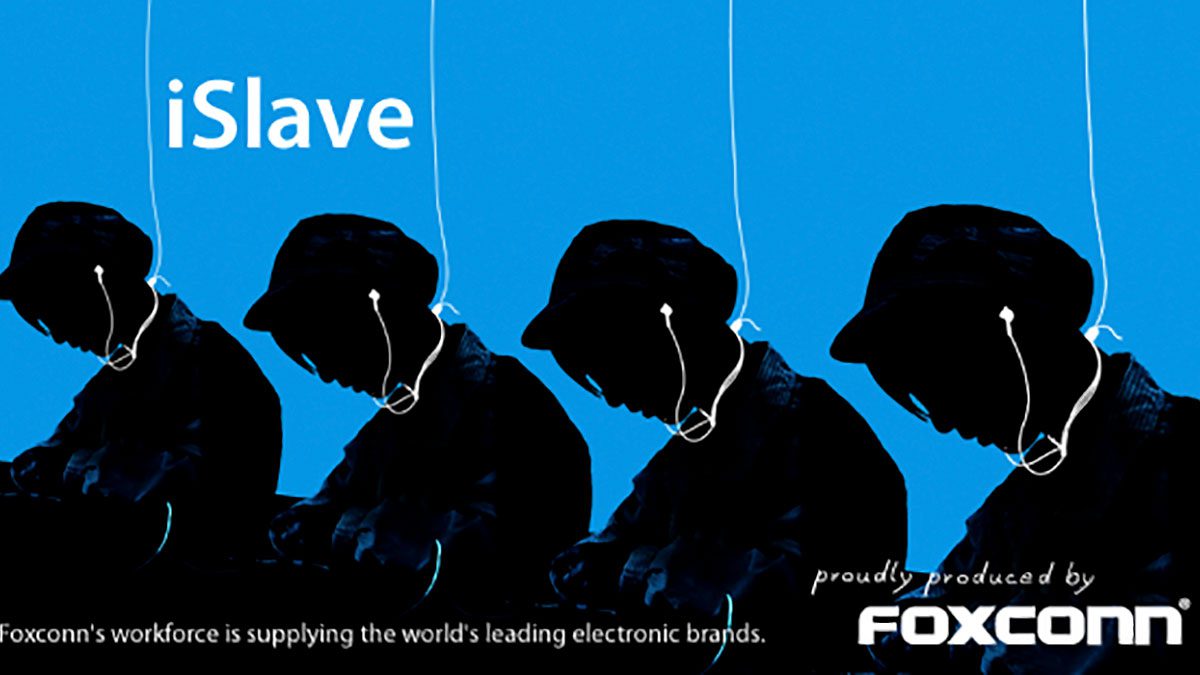Videos that went viral in China last month showed FoxConn workers fleeing factories in Zhengzhou, capital of Henan Province, to escape lockdowns ordered due to COVID-19. FoxConn is a Taiwanese-owned company that plays a large role in global iPhone production and is one of Taiwan’s major tech giants. FoxConn founder Terry Gou is one of Taiwan’s richest men and has made forays into politics in recent years, such as seeking the Kuomintang’s presidential nomination in 2020.
In light of China’s continuing COVID-zero policies, migrant factory workers at FoxConn’s massive Zhengzhou complex were to be quarantined last month after traveling home by bus. But to avoid quarantines, some workers have instead taken to walking home, trekking across fields and roads on foot.
For its part, FoxConn stated that it will not prevent workers who want to leave their factories from doing so. Local governments have urged workers to inform them that they are departing, but FoxConn workers feared being tracked down by state security forces. Some local residents set up stations to help traveling FoxConn workers.
FoxConn has 200,000 workers at the Zhengzhou complex, which is responsible for close to half of global iPhone production. It is not clear how many workers have COVID-19 and are to be quarantined. Zhengzhou has a population of six million. Other cities in central China, including Wuhan, have seen COVID waves in November, as have Hainan and Xinjiang Provinces.
Since the wave of FoxConn workers fleeing their jobs, however, the situation further escalated earlier this week, with workers clashing with state security forces. This was in reaction to new regulations requiring workers to stay in their positions until March 2023, working through the Lunar New Year holiday, or else forfeit their bonuses.
The situation facing FoxConn workers illustrates the precarious situation of migrant workers during COVID-19. Given China’s adherence to COVID-zero, migrant workers have been locked away in crowded dormitories, in unsanitary conditions, as a response to clusters of COVID-19 cases.
This perhaps more broadly points to how migrant workers are treated as disposable sources of labor by capital. Migrant workers were treated much the same way in Taiwan after clusters appeared at electronics factories in Miaoli, with migrant workers remaining confined to their dormitories even after the clusters subsided. There was a clear racial component to this treatment, seeing as migrant workers in Taiwanese electronics factories were mostly from southeast Asian countries. Nevertheless, in either context migrant workers are treated as disposable “low-end populations” to be thrown away when providing for their care proves inconvenient.
The treatment of migrant workers in China has made international headlines several times in recent years, such as the mass evictions of migrant workers in November 2017. This took place after a fire that killed 17, subsequently used as a pretext for migrant worker evictions at a time when the Chinese government was aiming to institute population controls in Beijing.
In the case of FoxConn, the Chinese government has intervened to benefit the Taiwanese tech giant by facilitating its mass recruitment of migrant workers. This is a case of collusion between the state and capital at the expense of workers. Indeed, FoxConn simply seeks to maximize its profits at the expense of workers, Taiwanese or Chinese alike.
After police told people not to chant “no more lockdowns” they began chanting “more lockdowns” and “I want to do COVID tests” pic.twitter.com/R8Y29TRFwa
— Vivian Wang (@vwang3) November 27, 2022
Since the Zhengzhou clashes earlier this week, the situation escalated further following a fire killed residents in an apartment block in Urumqi, capital of Xinjiang Province. People were especially angry that firefighters were unable to enter the building, whose residents were locked inside as part of restrictive quarantine measures.
In the wake of the Urumqi fire, public outrage has spilled out into demonstrations in major Chinese urban centers. Protests have taken place Beijing, Shanghai, Chengdu, Urumqi, Szechuan, and other places. Many demonstrators have taken to holding blank sheets of paper, seeing as the Chinese government has punished people holding signs with slogans.
In Shanghai Urumqi Street was a major site of protest. City authorities responded by removing street signs showing the name of the street, evoking much mockery online. Images of the protests have quickly become iconic, including an image of a lone man and woman confronting amassed police.
Both the Zhengzhou protests and the Urumqi blaze were precipitating events for the current protests. Outrage is directed against the restrictions associated with COVID-zero policies, with protesters calling for an end to testing and lockdowns. Particularly in light of the fact that Urumqi is the capital of Xinjiang, the fire also shows how underprivileged groups, such as Uyghurs and migrant workers, have been disproportionately impacted by COVID-zero policies.
Some protests have spilled over into demands for democracy and freedom of speech and calls for Xi Jinping to resign. It is probable that multiple demands overlap within the present protest, including more direct opposition to the CCP and specifically an end to COVID-zero. The protests are thought to be the largest demonstrations in China since the 2011 Wuhan protests and perhaps since Tiananmen Square in 1989.
That the protests have not yet been put down may indicate that the CCP leadership is evaluating its options. Spontaneous solidarity rallies have been held in Taiwan and other countries.
At this movement in the chilly winter night, Shanghai people are chanting on the downtown street: “We don’t want dictatorship, we want democracy.” After 3 years of suffering from lockdown & control of society, people are angry. pic.twitter.com/AZRFh6bbiE
— Vivian Wu (@vivianwubeijing) November 26, 2022
While the Chinese government may be pushed to relax COVID-zero policies, this will necessarily lead to an uptick in cases, which China is less equipped to deal with because the authorities do not appear to have spent the time bought by adhering to COVID-zero to build up medical capacity in preparation for an eventual transition away from COVID-zero and because Chinese-produced vaccines are less effective. Major Chinese cities were already seeing an uptick of cases before the protests broke out. Moreover, the Chinese government has tried to avoid importing more effective Western vaccines – a manifestation of “vaccine nationalism.”
It may have been the hope of the Chinese leadership to maintain COVID-zero indefinitely, since it may fit their purposes to put increasing distance between China and the rest of the world. The economic shockwave that results from the eventual uptick in cases will have large ramifications and deal a further blow to the political legitimacy of the present CCP leadership, which has staked so much on COVID-zero.
Thus, whatever the outcome of the protests, unrest can be expected to continue.
Source. Brian Hioe, Protests Take Place Across China, New Bloom: Radical Perspectives on Taiwan and the Asia Pacific, 11/28/22.



